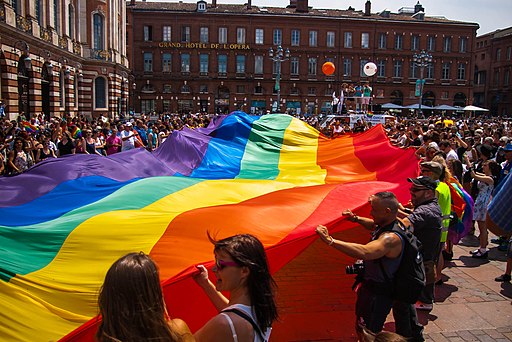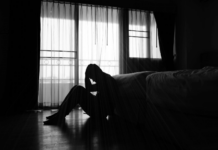LGBTQ+ people are more likely to experience psychological distress but report more barriers to help when accessing mental healthcare.
A new study from the University of Tennessee investigates this conflict as a structural healthcare issue and highlights the discrepancy between greater vulnerability and fewer resources for LGBTQ+ people. The authors, led by doctoral student Elliot S. Spengler, write:
“Despite sexual minorities attending mental health care at higher rates than their heterosexual counterparts, sexual minorities report more barriers to care, more unmet mental health needs, and a higher perceived need for mental health care. Sexual minorities are also more than two times more likely to experience a mental health disorder and three times more likely to experience a serious mental health disorder. This elevated distress results from a complex interaction of stressors sexual minorities face, including discrimination and prejudice.”
 As of late, scholars have taken on the structural vulnerability framework to identify and break down the sociocultural elements that discourage people from getting the healthcare they need. In 2019, 23.6% of individuals diagnosed with mental health disorders said that they did not receive the health services they needed. Of the people who did not receive help, about 60% reported not having the money or the time to seek out mental health services.
As of late, scholars have taken on the structural vulnerability framework to identify and break down the sociocultural elements that discourage people from getting the healthcare they need. In 2019, 23.6% of individuals diagnosed with mental health disorders said that they did not receive the health services they needed. Of the people who did not receive help, about 60% reported not having the money or the time to seek out mental health services.
These factors represent potential barriers to entry for any individual. However, this study focuses on LGBTQ+ people, in particular, because they, on average, engage in less help-seeking behavior and tend to have lower intentions to seek mental health care. This raises alarms for psychologists and researchers, especially considering that LGBTQ+ youth are more than four times as likely to commit suicide than their peers.
“Despite the relatively recent paradigmatic shift toward affirmative therapy, help-seeking for sexual minorities must also be contextualized within the fraught history of psychology and other mental health disciplines producing and perpetuating heterosexism, heteronormativity, and other intersecting forms of inequality,” the authors write. “Help-seeking may be better understood through a lens of mental health inequity. The structural vulnerability may hinder members of marginalized social groups’ access to mental health services due to structural inequality and institutional oppression.”
The researchers conducted a survey with 398 participants who self-identified as bisexual, gay or lesbian, queer, pansexual, demisexual, asexual, transgender, and non-binary. They measured psychological distress with the Kessler Psychological Distress Scale, a standard method that asks participants about the frequency of thoughts and behaviors associated with depression and anxiety symptoms.
Then, participants were asked about their attitudes toward seeking mental health care and perceived mental health professional “sexual minority affirmativeness.” In other words, the degree to which therapists, psychologists, and psychiatrists would be able to engage with LGBTQ+ communities and understand queer-specific issues. Opposite this measure, participants were also asked about their perceptions of mental health professionals’ “sexual minority prejudice.”
Participants answered questions about structural barriers to entry, too. Questions about the degree to which they knew how to seek out mental health services and whether they had the time/money to seek out help represented the structural vulnerability framework in this survey.
Results supported the researchers’ hypotheses: experiencing structural barriers to entry was significantly associated with lower help-seeking intentions.
The structural vulnerability framework accounted for more than half of the variance in help-seeking intentions. Results also suggested that LGBTQ+ people approach mental health with a reactive—rather than proactive—strategy of seeking help. This means that LGBTQ+ people are unlikely to seek help at the onset of psychological distress and instead seek help once their distress becomes bad enough to justify mental health service use.
This study is the first to spotlight how structural mental health care problems block LGBTQ+ people from receiving the help they need. All-in-all, the final data supports the prediction that LGBTQ+ people are—much like their heterosexual and cisgender peers (in the United States)—unable to receive the help they need because of time and money.
This study is possibly limited in how wide of a net it casts. Although a wide variety of LGBTQ+ people are considered here, this can be a double-edged sword. Queerness can be an intersectionality unto itself—people can be both transgender and gay, and there are many permutations of identities that are possible when then considering race and gender as well. Furthermore, most of the sample in this study lived in an urban area, completed higher education, and identified as White, male, and bisexual. Further research can hopefully fill in the gaps with a more diverse sample.
This research corroborates the consideration of power that policy change and community support have to impact LGBTQ+ people. As acceptance becomes more widespread within legislation and the general public, LGBTQ+ people become less likely to commit suicide. It only makes sense, then, that structural barriers to entry proportionally prevent LGBTQ+ people from receiving the help they need.
Although queer people frequently endure psychological distress and oppression at an isolating, individual level, history shows that changes made at the system and community levels can alleviate that harm. For LGBTQ+ people to receive the mental health care they need, change has to be prioritized and sought out in our institutions and systems that have blocked minorities from feeling cared for in the past.
****
Spengler, E., Tierney, D., Elledge, L., & Grzanka, P. (2022). Beyond the Individual: Sexual Minority Help-Seeking and the Consequences of Structural Barriers. Journal of Counseling Psychology, 70. https://doi.org/10.1037/cou0000657 (Link)















Removed for moderation.
Report comment
I live in a smallish town in Missouri (Kennett) and was a client of the “behavioral health” center headquartered here, for over 10 years. I was badly traumatized in 2005 via a 96-Hour Hold (in Missouri, initial psych holds are 96 hours) when I lived in St. Louis, which, as it turns out, changed the course of my life forever.
I’ve had some rough times — but I worked through. Then, in 2021, I was forcibly taken for a 96 Hour Hold again. This hold was initiated by a provisionally licensed counselor who I had spoken to over the phone, and never met in person. Her supervisor is directly related to an abusive manager that I worked for at a grocery store.
The first line of this counselor’s Affidavit against me reads: “John is a 57 year old, single, homosexual, Caucasian male who presents with depression, anxiety, paranoia, hopelessness, and financial struggle.”
This Affidavit was authored by a provisionally licensed counselor with a long list of conservative Christian credentials. She obtained her Bachelor’s degree from a Christian collage, and her prior experience is with Christian organizations.
All through my time in counseling with this agency, though I told my story, the trauma I experience in 2005 was ignored. Apparently my homosexuality is the issue — to them. I have not been involved with gay people or the gay community since I left St. Louis in 2009 — after another forced hospitalization. I realized then all I would get in St. Louis if I reach out…would be a pair of handcuffs and a psych hold.
The 2021 retraumatization was like it was scripted from that in 2005. Even the stop mid-ride to the hospital. Instead of getting abused by the cop, though, it turned out that he did not have the key to the handcuffs he had place on me, and arranged to meet with another cop for that key, at this particular location.
This go-round, I made some feeble attempts afterwards at “clearing my name” but 2005 taught me that any effort would be futile.
As a gay man with a psychiatric diagnosis I live in a police state from which I will never be “rehabilitated.”
Report comment
That is disgusting! The discrimination against anyone with a “mental health” label is bad enough, but these folks have used that to leapfrog their anti-gay biases into the forefront! Thanks for sharing your story!
Report comment
Steve…that part I could almost deal with….
It’s the re-opening of the 2005 trauma, with this now added to it, that is overwhelming me. These things tend to occur around September, the 15th being of significance. 9/15/87 my mother died. I was hospitalized once before in September. In 2021 I was hospitalized, and released on the 15t. September 22 I was laid off my job. I’ve only secured employment recently, at a significant cut in pay. I’m barely hanging on, physically, mentally, financially, and emotionally. I’m 59 years old, broke, beaten, and defeated. I cannot get therapy in this area, it’s a smallish-town, and I’m even finding it troublesome to get physical concerns addressed. A while back, when I had a few $$$’s, I bought a website domain and package, and was going to blog my story there. But I don’t have the energy. I’m beaten and defeated…and besides, who will listen? What difference will it make? The fact is, it won’t.
I work 40+ hours a week, 2nd shift, because I can drive there by day, and creep back on backroads at night. I have advanced cataracts that I cannot get treated. The job is an hour away, so I have 2 hours commute time. I come home exhausted. On the weekends I crash. I do summon some energy to go to church on Sunday (yeah, I go to an Episcopal church) but that’s it. No friends, just two pets and one of those is going to have to have a vet appointment.
They lock us up to “save our lives”…..and the results, in my case, was to destroy mine. And no one cares. They’re the experts, we’re the sick. They still tell the story, we don’t get a place at that table. They take from big pharma — and we go broke, homeless, or suicide. Silenced by their stigma and expertise.
My apologies for rambling. It’s really hard for me right now.
Report comment
It sounds awful! I don’t understand how psychiatry can look at this kind of result and feel “successful.” It is criminal what they’ve done to you!
Do you have anyone you can talk to who would understand and provide some support to you? I mean real PEOPLE, not “professionals” pretending to “be there to help.”
Report comment
No, there is no one. I am alone in this.
Report comment
That really sucks!!!
Report comment